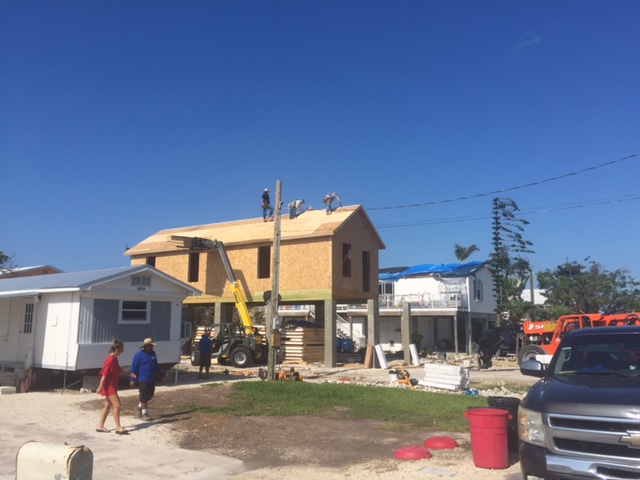
In November 2018, Cecelia Mattino of Marathon challenged the City of Marathon’s decision to accept its share of former Gov. Rick Scott’s award of 1,300 additional affordable housing units in the Keys. Now, two other cases have been filed — Naja Girard against the City of Key West in March of 2019, and Catherine Bosworth against the Village of Islamorada in April of 2019.
Girard co-owns Key West The Newspaper (the “Blue Paper”). Bosworth is described as a former schoolteacher. Mattino’s petition said she is the mother and primary caretaker of her disabled daughter.
The administrative hearing will put the Keys’ No. 1 debate into focus — the affordable housing crisis versus hurricane evacuation. That’s not as weird as a pairing as might seem at first glance — the amount of development allowed in the Keys by the state is legally tied to the ability to evacuate tourists and residents safely if a storm is approaching. The competing topics have roots in the economy, unfilled jobs, the environment and the ideal number of residents and amount of tourism the islands can support.
Accepting the additional affordable housing units — 300 per municipality — requires changes to the municipalities’ comprehensive plan and those changes are currently under review by the state Department of Economic Opportunity.
The challenges are being bundled into one hearing, presided over by an administrative law judge in Tallahassee. The hearing will take place in Marathon, but the exact date has not been determined, although likely in late July.
All three women make similar claims about the additional building rights:
- Adverse effects from a two-phase early evacuation plan.
- Additional residents would overburden the Keys’ already–crowded roads.
- Contributing to a deteriorating quality of life as the Keys become more populated, and more stresses placed on services.
The City of Marathon has hired outside counsel — Keys West’s Smith Hawk law firm — to defend the challenge. So far, the city has spent $110,000 and on May 28, the Marathon City Council agreed to spend as much as $200,000.
“Despite our objections, the case has been consolidated to include Islamorada and Key West,” said Marathon city attorney David Migut. “I would like to request advance legal fees not to exceed $200,000.”
Islamorada is also using Smith Hawk as co-counsel and Key West is using in-house counsel. Assistant city attorney George Wallace of Key West declined to comment on the ongoing litigation.
The petitioners are being represented by the law firm of Robert N. Hartsell, based in Pompano Beach. Attorney Richard Grosso — a well-known challenger of Florida growth management policy — is also on the petitioners’ legal team.
The new building rights come with added stipulations. For example, tenants must agree to evacuate 48 hours before a hurricane while other Keys residents are held to a standard of 24 hours. It’s unclear who would enforce the early evacuation and whether or not it would apply to everyone. Marathon proposes to exempt first responders, correction officers and health care professionals required to remain during an emergency from the 48-hour evacuation. Finally, the additional housing units have to be rentals, not units for sale.
In some corners, the additional building rights are an attractive alternative to “build out,” which is scheduled to happen in 2023, when the state will no longer issue new building development rights in the Florida Keys. The number of remaining building rights, even including the “extra” 1,300, is far less than the number of undeveloped properties. Takings lawsuits, where the property owner sues government because he or she cannot develop the land, may be slowed by the ability to grant affordable housing permits. Legal precedent suggests that any beneficial use — whether that’s the ability to build a modest home instead of a market-rate mansion — would exempt governments from liability.
If the challenge is rejected, an appeal could be filed with the First District Court of Appeals in Tallahassee.


















